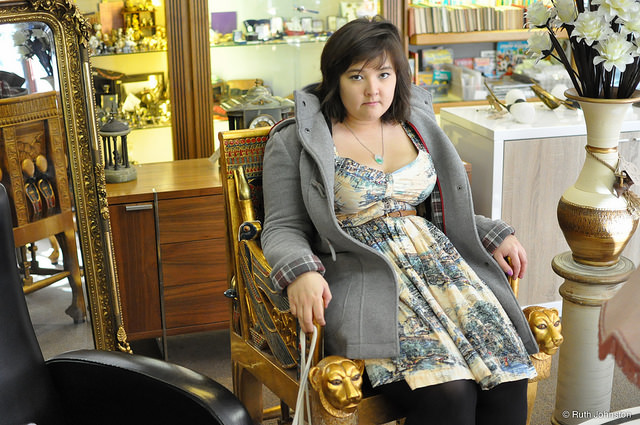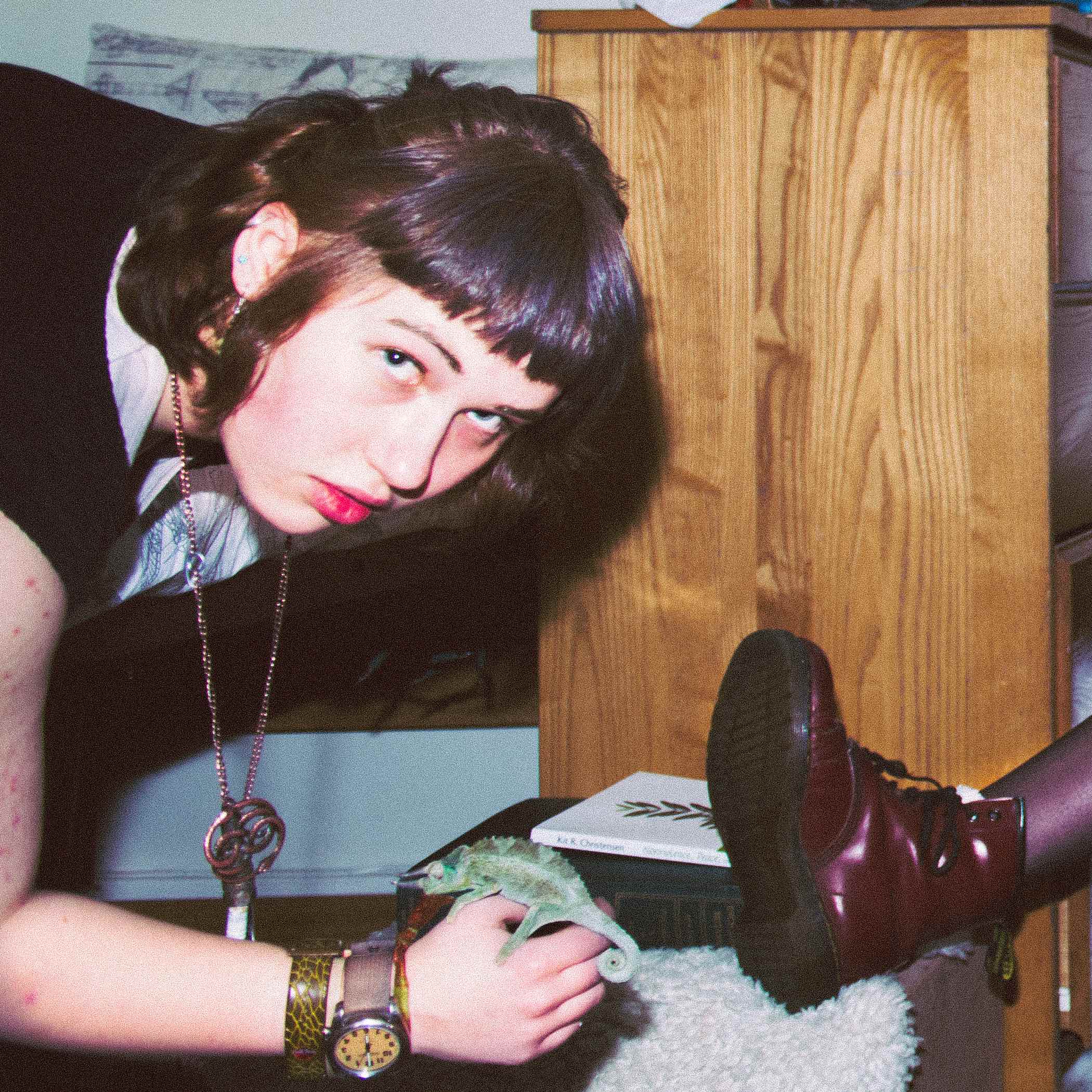Flash Nonfiction by Mel Andrews
Why We Can’t Talk About Death
TW's new issue about YA writing and reading will address more than fictional dystopias. Here, one young writer takes on the real world.

Last fall, I killed a lot of unstructured hours in thrift stores, searching for a universal truth—or anything I could get for a buck and three pennies.
One November afternoon, I wound up shuffling around the XXL denims in a Saver’s far enough out of Boston to be frequented by the genuinely cash-strapped, not the city’s crowd of sad teens who have co-opted flip phones and poverty and the refuse of past generations as an aesthetic.
A woman approached me, brandishing swimming-pool-sized jeans. “Can you believe how much weight I’ve lost?” she said in a voice that sounded like cigarettes and cracked tarmac. “I finally have to start shopping in the women’s section again.”
It was a fair point. Her clothes sagged from her middle-aged body. She showed me how to judge the waist on a pair of jeans by halving them and stretching them around her neck like a noose. “The Puerto Ricans taught me that,” she said.
I was reluctant to strike up a conversation with this stranger, but when she leaned in, I saw a small faded tattoo beneath her right eye. I’d recently tattooed myself beside the right eye, and I tried to picture her as a girl, as aimless and naive as myself.
We bitched about women’s clothing sizes. “I’m shopping for clothes to die in,” she said finally.
I should have told her that I, too, was all too familiar with death. I should have said, “Let’s get coffee and talk about cancer,” or “Nah, you’re just shopping for clothes to live really fucking well in.” But instead, we both laughed a little desperately and drifted away in waves of denim that still smelled of nicotine and Lysol.
I was afraid. I’m uncomfortable around ambulances or the overdressed crowds outside funeral parlors or when I take a boy up six flights of a fire escape and he talks for an hour about the logistics of jumping.
I want to talk about death. I have lost so many people it’s almost reached a point of necessity. But I’ve learned by now not to bring it up and to back out quickly when someone else does. Death is the fairest thing there is—it’s just about the only thing we're assured of—but it’s not something we give ourselves permission to discuss.
In his 1997 book The Needs of the Dying, hospice-care leader David Kessler says “the right to express feelings and emotions about death” is crucial. “Americans don’t die well,” he says—but it’s hard to do anything well once it’s been made unspeakable.
Art Information
- "Norwich Weekender" © Ruth Johnston; Creative Commons license.
 Mel Andrews is a photojournalist, pseudo-journalist, and student of interdisciplines and questionable discipline at Tufts University in the Boston area. Mel is learning to pick apart brains and power structures. Mel believes in the radical, dissident practice of truthtelling.
Mel Andrews is a photojournalist, pseudo-journalist, and student of interdisciplines and questionable discipline at Tufts University in the Boston area. Mel is learning to pick apart brains and power structures. Mel believes in the radical, dissident practice of truthtelling.
